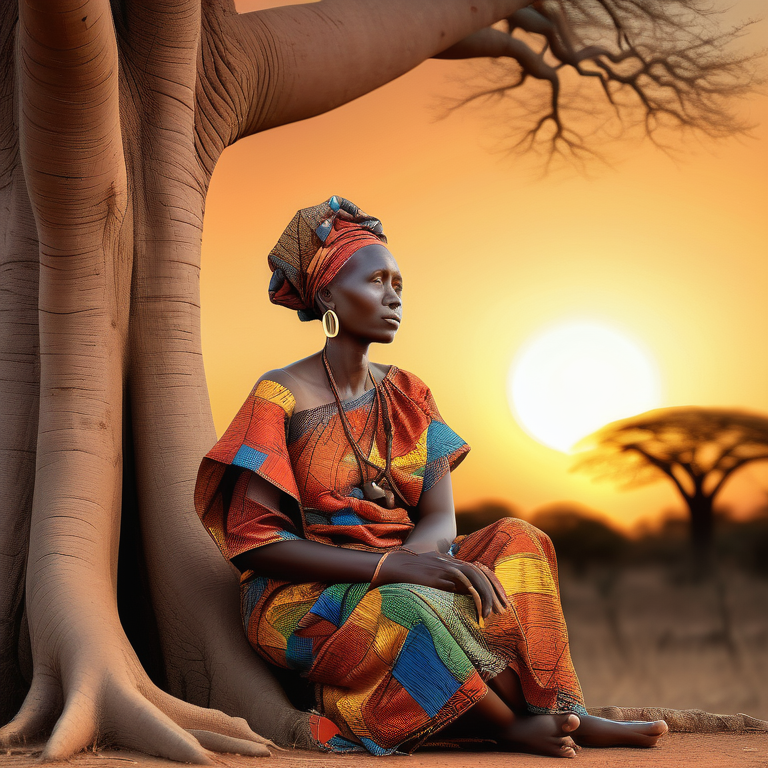Women’s Sexuality in East African Societies
Exploring Women’s Sexuality in East African Societies

Key Highlights
- Women’s sexuality in East African societies has been influenced by historical,, and religious factors
- Pre-colonial views on sexuality varied across different communities in East Africa
- The impact of colonialism on sexual norms and gender relations continues to shape women’s sexuality in the region
- Cultural practices, such as rites of passage and marriage customs, play a significant role in shaping women’s sexuality
- The influence of religion, particularly Christian missionaries, has had a profound effect on women’s sexuality in East Africa
- Modern shifts in the perception of women’s sexuality are influenced by factors such as education, media representation, and legal frameworks
Introduction
Women’s sexuality is a complex and multifaceted aspect of human life, influenced by various social, cultural, and historical factors. This blog will explore the diverse and evolving nature of women’s sexuality in East African societies. East Africa has a rich and diverse cultural heritage, with each community having its own unique perspectives on sexuality and gender roles, including the controversial topic of homosexuality.
Throughout history, the views on women’s sexuality in East Africa have been shaped by a combination of pre-colonial, colonial, and post-colonial influences. The introduction of Christianity and the impact of British rule have had a particularly profound effect on sexual norms and gender relations in the region.
Cultural practices and traditions also play a significant role in shaping women’s sexuality in East Africa. Rites of passage and marriage customs, for example, are important milestones in a woman’s life and often have implications for her sexual autonomy and reproductive health.
Religion, especially the influence of Christian missionaries, has also played a significant role in shaping women’s sexuality in East Africa. The introduction of Christianity brought with it new moral and social values, which have had a lasting impact on the perception of women’s sexuality.
In recent years, there have been shifts in the perception of women’s sexuality in East Africa, influenced by factors such as education, media representation, and legal frameworks. These changes have led to increased awareness and empowerment among women, challenging traditional gender roles and norms.
Historical Context of Women’s Sexuality in East Africa
The historical context of women’s sexuality in East Africa is shaped by various factors, including pre-colonial views on sexuality, the impact of colonialism, and the introduction of Christianity. Before the arrival of colonial powers, African societies had diverse perspectives on women’s sexuality, with some communities recognizing the autonomy and agency of women, while others imposed strict gender roles. The colonial era brought significant changes to sexual norms and gender relations, as Christian missionaries sought to impose their own values and beliefs on indigenous cultures.
Pre-colonial Views on Sexuality
In pre-colonial East Africa, the views on women’s sexuality varied across different communities. Some African societies recognized the autonomy and agency of women, with women playing significant roles in decision-making processes and contributing to the social and economic development of their communities. In these societies, gender roles were often more fluid, and women enjoyed greater sexual autonomy. However, in other communities, patriarchal norms prevailed, and women’s sexuality was heavily regulated. Women were expected to adhere to strict codes of conduct and were often subject to social and cultural restrictions.
Impact of Colonialism on Sexual Norms
The impact of colonialism on sexual norms in East Africa was profound. Christian missionaries, who accompanied the colonial powers, sought to impose their own values and beliefs on indigenous cultures. These missionaries viewed African societies as morally and sexually inferior, and sought to “civilize” and “Christianize” the local population. As a result, traditional practices and beliefs surrounding women’s sexuality were often stigmatized or suppressed. The introduction of Christianity and the influence of Western ideas on gender roles and norms had a lasting impact on sexual attitudes and behaviors in East Africa. The legacy of colonialism continues to shape sexual norms and gender relations in the region today.
Cultural Practices and Women’s Sexuality
Cultural practices and traditions play a significant role in shaping women’s sexuality in East African societies. Rites of passage, such as female circumcision or initiation ceremonies, are important milestones in a woman’s life and often have implications for her sexual autonomy and reproductive health. These practices are deeply rooted in tradition and cultural beliefs, and can differ significantly across different communities in East Africa. Marriage customs also shape women’s sexuality, with expectations surrounding virginity, fertility, and sexual obedience often influencing a woman’s role and status within her community. However, in recent decades, these practices have also made their way to the Western Hemisphere, including in the United States. The widespread practice of female circumcision is considered in African society a vital part of the initiation process of a girl into womanhood, as her mother and grandmother did for generations prior.
Rites of Passage and Their Significance
Rites of passage are important cultural practices in East African societies, marking a transition from one stage of life to another. These rites often have implications for a woman’s sexuality and reproductive health. Some key points to consider include:
- Female circumcision, also known as female genital mutilation, is a common practice in some communities and is believed to ensure a woman’s purity and chastity.
- Initiation ceremonies, which can vary significantly across different communities, often involve teachings about gender roles, reproductive health, and sexual behavior.
- These ceremonies serve as a way of transmitting cultural values and norms to young women, and can shape their understanding of sexuality and their roles within society.
Marriage Customs and Sexual Autonomy
Marriage customs in East African societies have a significant impact on women’s sexuality and autonomy. Women are often expected to maintain their virginity until marriage, and pre-marital sexual activity can be heavily stigmatized. Once married, women are expected to fulfill their husband’s sexual needs and bear children. This expectation can limit a woman’s sexual autonomy and agency, as her sexual desires and preferences may be overshadowed by societal expectations. However, the perception of marriage and women’s roles within it is changing, as more women seek to challenge traditional gender roles and assert their sexual autonomy within the context of their marriages.
Religion and Its Influence on Women’s Sexuality
Religion, particularly the influence of Christian missionaries, has had a profound effect on women’s sexuality in East African societies. The introduction of Christianity brought with it new moral and social values, which often clashed with traditional African beliefs and practices. Christian missionaries sought to impose their own ideas of sexual morality and gender roles on indigenous cultures, often stigmatizing or suppressing traditional practices and beliefs surrounding women’s sexuality. The influence of religion continues to shape sexual norms and attitudes in East Africa today.
Christian Missionary Perspectives
Christian missionaries played a significant role in shaping the perception of women’s sexuality in East Africa. They viewed African societies as morally and sexually inferior, and sought to “civilize” and “Christianize” the local population. Missionaries imposed their own ideas of sexual morality, often stigmatizing or suppressing traditional practices and beliefs surrounding women’s sexuality. They emphasized the importance of sexual purity, marital fidelity, and obedience to patriarchal norms. The influence of Christian missionary perspectives can still be seen in the attitudes and values surrounding women’s sexuality in many East African societies.
Indigenous Beliefs vs. Imported Religions
The introduction of Christianity and other imported religions in East Africa challenged traditional indigenous beliefs surrounding women’s sexuality. Indigenous African cultures often had their own unique perspectives on gender roles and sexual practices, which were deeply rooted in cultural and spiritual beliefs. The arrival of Christian missionaries and the imposition of Western values disrupted these traditional beliefs and practices. While some communities embraced the new religious teachings and adopted them as their own, others resisted and sought to preserve their indigenous beliefs and practices. The clash between indigenous beliefs and imported religions continues to shape the perception of women’s sexuality in East Africa today.
Modern Shifts in the Perception of Women’s Sexuality
In recent years, there have been significant shifts in the perception of women’s sexuality in East Africa. Factors such as education, media representation, and legal frameworks have contributed to these changes. Women’s access to education has increased, providing them with greater knowledge and awareness of their sexual and reproductive rights. The media has also played a role in challenging traditional gender roles and promoting a more inclusive and empowering representation of East African women, including Kenyan activist Ann Kioko who led the charge against the Reproductive Healthcare Bill. Legal frameworks, such as the new constitutions in some East African countries like Kenya, have recognized and protected women’s sexual rights, promoting gender equality and women’s empowerment.
The Role of Education and Awareness
Education plays a crucial role in changing attitudes towards women’s sexuality in East Africa. As more women gain access to education, they are empowered with knowledge and awareness of their sexual and reproductive rights. Education provides women with the tools to challenge traditional gender roles and norms, and to make informed decisions about their own bodies and sexual experiences. It also helps to dispel myths and misconceptions surrounding women’s sexuality, promoting a more open and inclusive dialogue on the subject. By equipping women with knowledge and awareness, education plays a vital role in promoting women’s empowerment and autonomy over their own sexuality.
Media Representation of East African Women
The media plays a significant role in shaping societal perceptions of women’s sexuality in East Africa. Media representation of women can either reinforce traditional gender roles and stereotypes, or challenge and subvert them. In recent years, there has been a growing movement towards more inclusive and empowering media representation of East African women. This includes showcasing diverse narratives and stories that celebrate women’s agency, sexual autonomy, and empowerment. By challenging traditional notions of gender and sexuality, the media can help to create a more inclusive and progressive society that recognizes and respects women’s sexual rights.
Legal Frameworks and Women’s Sexual Rights
Legal frameworks have an important role in protecting and promoting women’s sexual rights in East Africa. The introduction of new constitutions in some East African countries has recognized and affirmed women’s rights to sexual autonomy, reproductive health, and freedom from gender-based violence. These legal frameworks provide a foundation for promoting gender equality and women’s empowerment, including in the city of Nairobi. However, there are still gaps and challenges in the implementation and enforcement of these laws, and gender inequality persists in many aspects of East African societies.
Laws Protecting Women’s Rights
Laws protecting women’s sexual rights in East Africa have made significant progress in recent years. New constitutions in some countries have recognized and affirmed women’s rights to sexual autonomy, reproductive health, and freedom from gender-based violence. These laws provide a legal framework for the promotion of gender equality and women’s empowerment. They prohibit practices such as female genital mutilation, child marriage, and domestic violence. However, there are still challenges in the implementation and enforcement of these laws, and gender inequality persists in many aspects of East African societies. Efforts are ongoing to bridge the gaps and ensure the full protection of women’s sexual rights under the law, including in South Sudan.
Gaps and Challenges in the Legal System
While there have been significant advancements in the legal protection of women’s sexual rights in East Africa, there are still gaps and challenges in the legal system. Gender inequality persists in many aspects of society and can impede the effective implementation and enforcement of laws protecting women’s rights. Cultural and social norms often perpetuate gender-based violence and discrimination, making it difficult for women to access justice and seek remedies for violations of their sexual rights. Additionally, there is a need for increased awareness and education among legal professionals and law enforcement agencies to ensure a more gender-responsive and rights-based approach to addressing women’s sexual rights.
Gender Dynamics and Power Relations
Gender dynamics and power relations play a significant role in shaping women’s sexuality in East African societies. Patriarchal norms and values often reinforce traditional gender roles and expectations, limiting women’s sexual autonomy and agency. Gender inequality persists in many aspects of society, including access to education, economic opportunities, and decision-making processes. However, there are also movements towards gender equality and women’s empowerment, challenging traditional norms and promoting women’s rights. These movements aim to dismantle patriarchal structures and create a more equitable and inclusive society that recognizes and respects women’s sexual rights.
Patriarchy and Its Effects on Women’s Sexuality
Patriarchy, the social system in which men hold primary power and dominate in roles of political leadership, moral authority, social privilege, and control of property, has profound effects on women’s sexuality in East African societies. Patriarchal norms and values often reinforce traditional gender roles, expectations, and stereotypes surrounding women’s sexuality. Women’s sexual autonomy and agency may be limited due to the power dynamics and unequal power relations inherent in patriarchal societies. However, there are ongoing movements towards gender equality and women’s empowerment that challenge patriarchal norms, promoting women’s sexual rights and creating space for diverse expressions of women’s sexuality.
Movements Toward Gender Equality
In East Africa, there are growing movements towards gender equality and women’s empowerment that challenge traditional gender roles and norms. These movements aim to dismantle patriarchal structures and create a more equitable and inclusive society that recognizes and respects women’s sexual rights. They advocate for the elimination of gender-based violence, the promotion of women’s access to education and economic opportunities, and the empowerment of women in decision-making processes. These movements also seek to challenge social and cultural norms surrounding women’s sexuality, promoting a more open and inclusive dialogue that affirms women’s agency and sexual autonomy. These efforts towards women empowerment are crucial in promoting gender equality and creating a more just and equal society for all.
Health and Women’s Sexuality
Health is an essential aspect of women’s sexuality in East African societies. Access to sexual and reproductive health services is crucial for women to make informed decisions about their sexual and reproductive lives. Issues such as HIV/AIDS, contraceptive use, and maternal health have a significant impact on women’s sexual well-being. The availability and accessibility of sexual and reproductive health services, as well as the addressing of sexual health myths and misconceptions, are important factors in promoting women’s sexual health and rights.
Access to Sexual and Reproductive Health Services
Access to sexual and reproductive health services is vital for women in East Africa to make informed decisions about their sexual and reproductive lives. These services include access to contraception, HIV/AIDS testing and treatment, maternal health care, and safe abortion services where legal. However, barriers such as stigma, limited resources, and cultural norms can impede women’s access to these services. Efforts are being made to improve access to sexual and reproductive health services in East Africa, including the provision of comprehensive and youth-friendly services, the training of healthcare providers, and the integration of sexual and reproductive health into primary healthcare systems.
Addressing Sexual Health Myths and Misconceptions
Addressing sexual health myths and misconceptions is crucial for promoting women’s sexual health and rights in East Africa. These myths and misconceptions can perpetuate stigma, hinder access to sexual health services, and contribute to the spread of HIV/AIDS and other sexually transmitted infections. Education and awareness campaigns play a vital in debunking these myths and providing accurate information about sexual health. These campaigns should be tailored to the specific cultural and social contexts of East African societies, addressing common misconceptions and providing clear and accurate information about sexual health. A text table highlighting some common sexual health myths and the correct information can be found below:
|
Myth |
Correct Information |
|
Myth 1: HIV can be cured by having |
HIV is a chronic condition that cannot be cured. It can |
|
sex with a virgin. |
be managed with antiretroviral therapy. |
|
Myth 2: Contraception causes |
Contraception is safe and effective when used |
|
infertility. |
correctly. It does not cause infertility. |
|
Myth 3: Masturbation is harmful and |
Masturbation is a normal and healthy sexual behavior. |
|
can lead to health problems. |
It does not cause health problems. |
Conclusion
Exploring the intricate tapestry of women’s sexuality in East African societies unveils rich historical, cultural, and societal influences. From pre-colonial traditions to modern shifts, the perception of women’s sexuality has evolved amidst influences like colonialism, religion, and gender dynamics. Legal frameworks, health access, and gender equality movements continue to shape the landscape. Understanding the complexities and nuances of this topic is crucial for promoting inclusivity and empowerment. How do you perceive these dynamics? Share your thoughts in the comments below. Your voice adds depth to this essential conversation.
Frequently Asked Questions
How do East African societies view LGBTQ+ women’s sexuality?
East African societies have diverse views on LGBTQ+ women’s sexuality. While some communities may be more accepting and inclusive, others may hold conservative and discriminatory attitudes towards LGBTQ+ individuals. The perception of LGBTQ+ women’s sexuality is often influenced by cultural, religious, and legal factors.
What are some common myths about women’s sexuality in East Africa?
Common myths about women’s sexuality in East Africa include beliefs that’s sexual pleasure is unimportant, that women should not express their desires or initiate sexual activity, and that women who are sexually active outside of marriage are immoral.
What are some common cultural beliefs or taboos regarding women’s sexuality in East African societies?
In East African societies, cultural beliefs or taboos around women’s sexuality include views on virginity, fertility rituals, and gender-specific roles in sexual relations. These norms shape societal expectations and influence women’s autonomy in expressing their sexuality.
How do societal expectations influence women’s expression of their sexuality in East Africa?
Societal expectations in East Africa often limit women’s expression of their sexuality. Women may feel pressure to conform to traditional gender roles and expectations, which can inhibit their sexual autonomy and agency.
Are there any traditional practices or rituals related to women’s sexuality in East African cultures?
Yes, there are traditional practices and rituals related to women’s sexuality in East African cultures. These can include rites of passage, such as female circumcision or initiation ceremonies, which mark a woman’s transition to adulthood and often have implications for her sexual autonomy and reproductive health.
What role does education play in changing attitudes towards women’s sexuality in East Africa?
Education plays a crucial role in changing attitudes towards women’s sexuality in East Africa. It provides women with knowledge and awareness of their sexual and reproductive rights, challenges traditional gender roles and norms, and promotes women’s empowerment and autonomy over their own bodies and sexual experiences.





